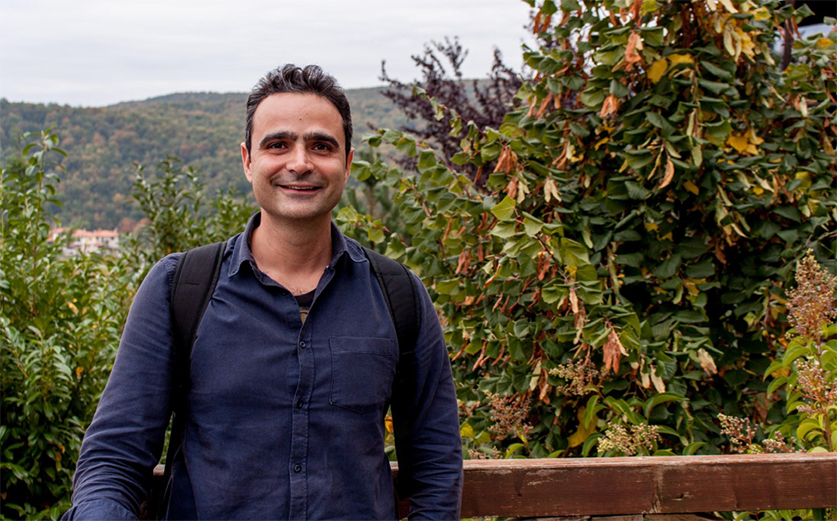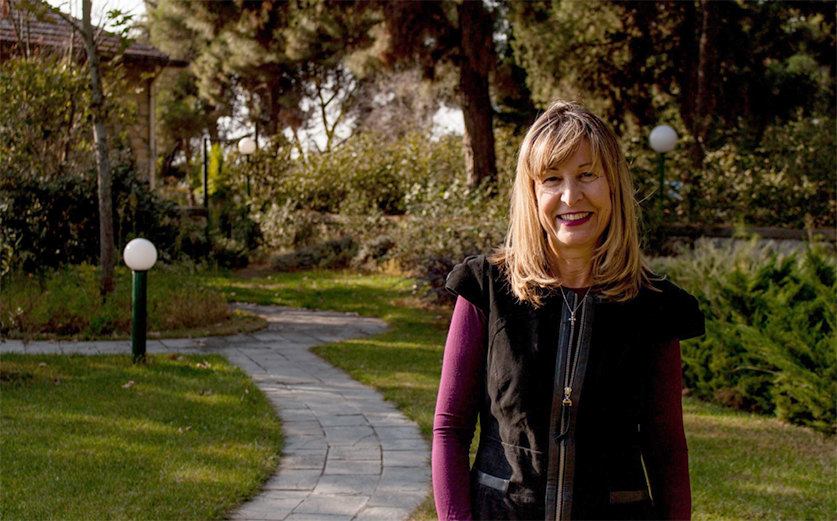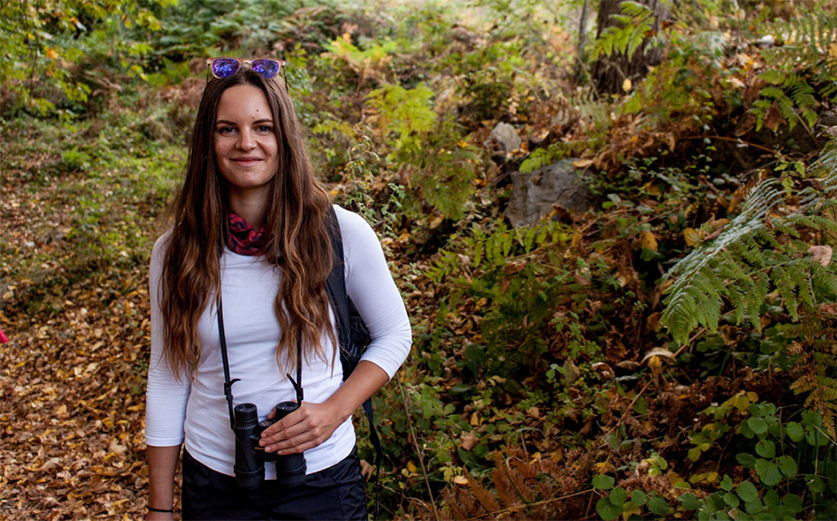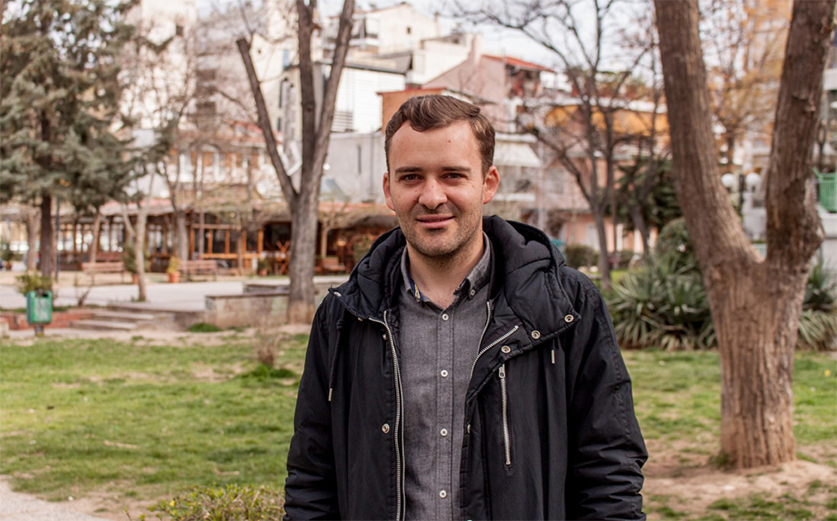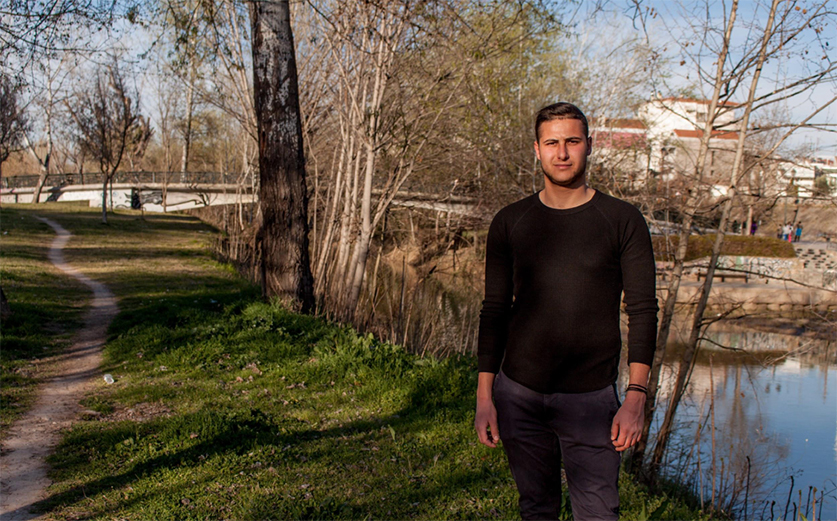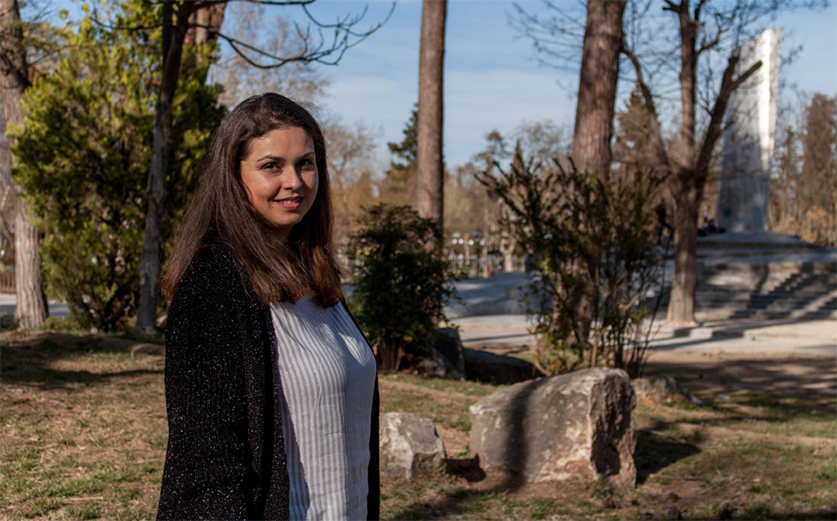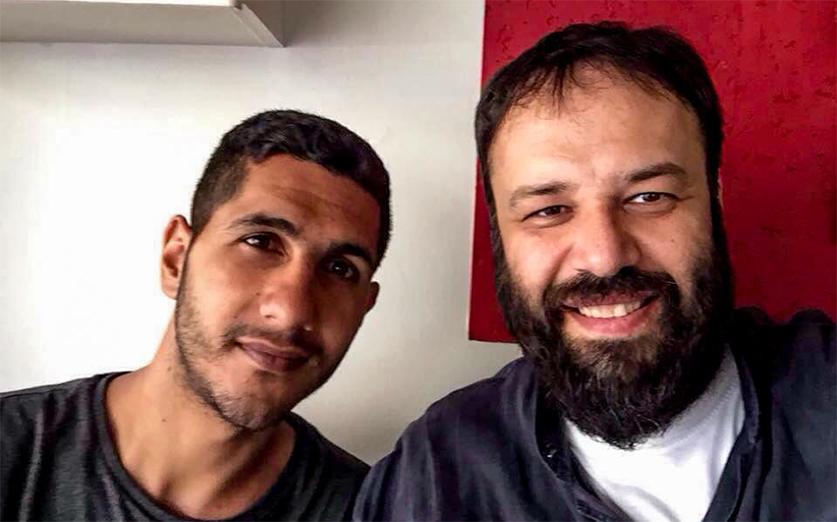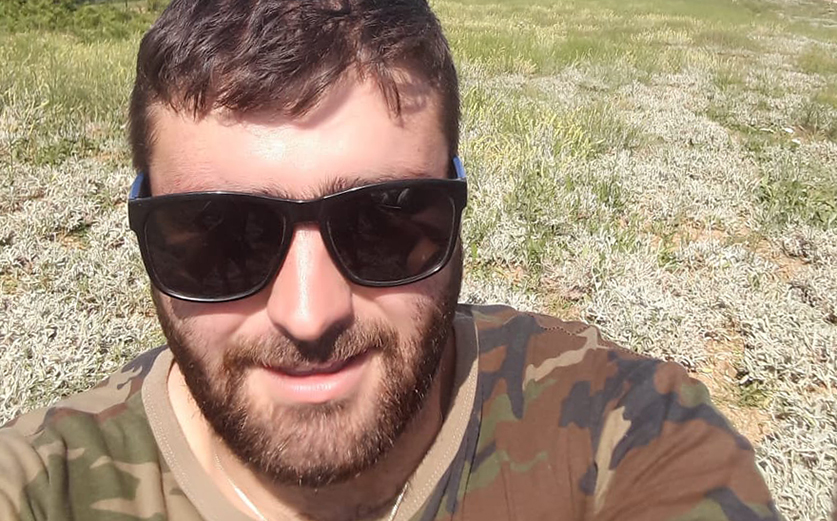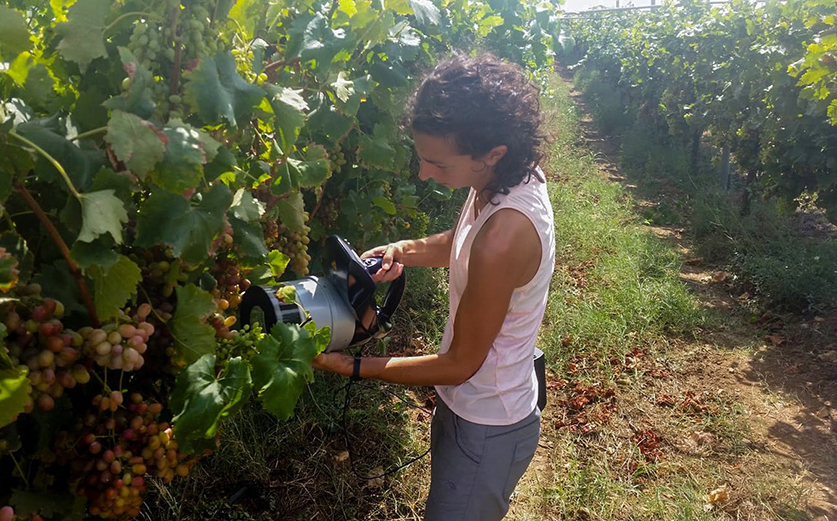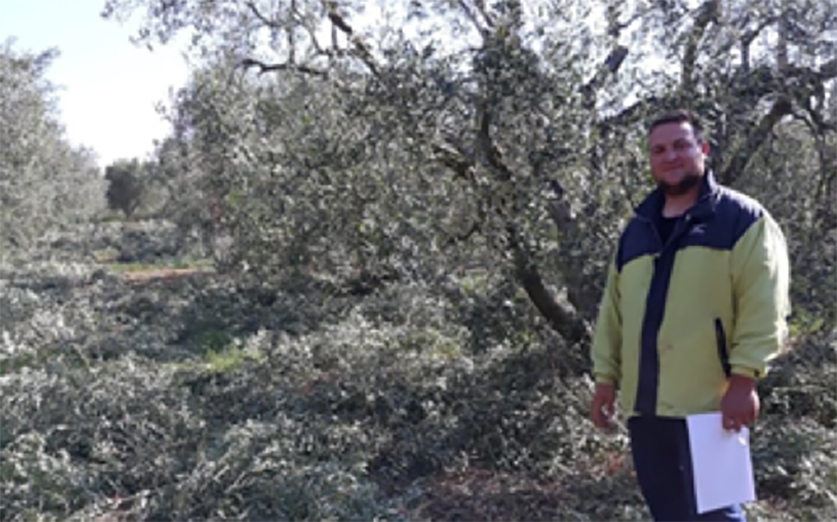Meet Katerina
Katerina Zagkretou, 26, grew up in Nea Moudania, Halkidiki. She graduated from NANG’s Alternative Tourism program at the American Farm School (AFS). Today, she leads hiking trips for Green Oliver, an alternative tourism and environmentally friendly activity office based in Thessaloniki. “Both of my parents love their jobs, and they taught me that it was very important to love what you do,” Katerina said. “I remember that when I was a child, I accompanied my father on walks in the woods and fishing trips. I watched him move comfortably in nature and became very familiar with it. I felt so free in the forest. It was so different from the courtyard of my house. I wanted to spend all my time outside.”
In 2017, Katerina graduated from the School of Agriculture, Forestry, and Natural Environment at Aristotle University, specifically from the five-year Department of Forestry and Natural Environment. “In Greece, forestry is not valued as much as in other countries that emphasize sustainable development and increasing the quality of daily life, so I take every opportunity to stress the crucial role of this science in solving modern environmental and social problems. For example, urban green spaces are directly linked to our mental health.”
Experience in the Alternative Tourism Program
Katerina participated in the first cycle of the Alternative Tourism program at AFS. The program taught her the legal framework governing alternative tourism activities, current visitor trends, and practical training on how to design and market an alternative tourism experience using a natural resource. “One of the most valuable parts of the program was the time I spent exchanging ideas and knowledge with other participants,” she said. “It’s difficult to identify the potential of a tourist destination and to bring together the right people to get it off the ground. But now I have the background and contacts I need to launch my own alternative tourism experience.”
Katerina and the other beneficiaries in her cycle “adopted” the mountain village of Elatochori Pierias and used what they had learned to create a new, year-long tourism profile for the area, exploiting the natural resources of the region in the most sustainable way. They formed groups related to gastronomy, the natural environment, visual exhibitions, creative workplaces, and events that connected local cuisine with art. “I participated in the group on the natural environment,” Katerina said. “We organized a hiking trip on one of the many paths in the area with intense biodiversity and natural beauty, and we identified medicinal and aromatic plants that could be used in the kitchen and in the production of cosmetic and therapeutic products.”
Working as a Mountain Guide
When Katerina began her studies in Thessaloniki in 2011, she also joined the Mountaineering and Climbing Club. Gradually, through her studies and her mountaineering activities, she realized that she wanted to work to promote the natural wealth of Greece and to combine scientific knowledge with hiking and sports in nature. She just completed her studies at the State Institute for Vocational Training with the specialty of Mountain Guide. “Greece is a mountainous country with a very intense landscape,” she said. “I think I will always be impressed by how many different destinations our country has to offer in proportion to its size.”
She began working with Green Oliver after a hiking trip in 2018 where she and the organizers had the opportunity to get to know each other and to discuss the type of excursions that the office organized, which agreed with Katerina’s own philosophy. “I believe Green Oliver stands out not only in its choice of special hiking trails, but because of the character of its actions: the goal of our excursions is not always to reach a peak or to cover more kilometers, but to reap the maximum benefits of contact with nature and to return to our more ‘primitive’ roots.” As part of the Alternative Tourism program, Katerina completed a two-month, full-time contract with Green Oliver, which enabled her to take on a larger role in organizing the office’s outdoor activities.
One of Katerina’s favorite routes is on the Tzoumerka mountain range in Pindos National Park, starting from the mountain shelter in the village of Pramanta near Ioannina and ending at the peak of Strogoula at an altitude of 2112 meters. It is an unforgettable route because it offers a panoramic view that will convince even the unbelievers that Greece is much more than sun and beaches.
Katerina also had a few words to say about the exploitation of natural resources in Greece, which directly affects alternative and hiking tourism since both occur in rural areas. “Greece is a small country with a wealth of natural resources. As a result, large-scale projects like the gold mines in Halkidiki or the wind farm in Agrafa, with so much direct impact on the food chain and people’s quality of life, occur relatively close to residential areas and prevent the development of alternative tourism and the promotion of local agricultural and livestock products. I’m not saying that the Greek countryside should become an area of absolute protection, because sustainable development and, by extension, economic progress, exists when multiple purposes are served. But we should consider the needs of the inhabitants, who depend on the proper functioning of the ecosystem, now and in the future. And on a personal level, it is important to understand that we hikers are responsible for preserving the destinations we visit. During our excursions, we try to leave the smallest possible footprint on the paths and to create an environmentally friendly philosophy.”
